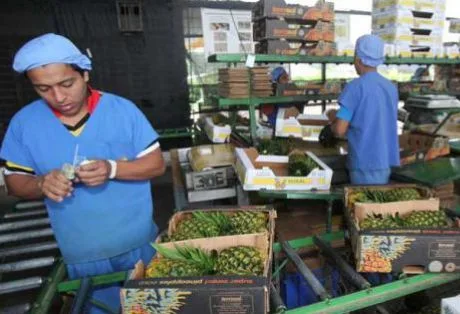Ecuador delegation pushes to extend trade preferences with the U.S. but outcome is uncertain
Ecuador has dispatched a team of business leaders and government officials to the U.S. in hopes of extending trade preferences for about 300 exports beyond December 31.

Pineapples are a major Ecuadorian export to the U.S.
According to the Ecuador Exporters Federation (Fedexpor), elimination of the trade preferences granted under the U.S. General System of Preferences (GSP) could mean $270 million in losses annually to Ecuadorian businesses.
The GSP program covers products from 120 countries that do not have bi-lateral trade agreements with the U.S., allowing specified products to enter the U.S. duty free.
Fedexpor says it is concerned that a preference extension will be more difficult to negotiate this year due to changing U.S. trade policies.
The Ecuadorian leaders will meet with representatives of the U.S. Chamber of Commerce, the Council of the Americas, the U.S. State Department and U.S. House of Representatives from Tuesday through Saturday.
“Renewing the GSP is critical for several sectors of Ecuadorian industry and agriculture,” says Fedexpor president Daniel Legarda. “Our largest exports to the U.S. are cut flowers, canned fruit, mangoes, pineapples, and sugar. If these products are forced to pay the standard 6.4% tariff, it would mean big loses for exporters. For flowers and agricultural products, the tariff could make our products noncompetitive.”
In total, Legarda says Ecuador exports $400 million to the U.S. annually.





















